This article is part of the Under the Lens series
Community Ownership Takes Center Stage
- A spring kickoff gardening day to start the Ashe Street Community Garden. Photo courtesy of the Durham Community Land Trustees
- Over 80 volunteers helped the Durham Community Land Trustees (DCLT) clean up and plant shrubs and trees on five of DCLT’s permanently affordable rental properties in East Durham. Photo courtesy of the Durham Community Land Trustees
- Over 80 volunteers helped the Durham Community Land Trustees (DCLT) clean up and plant shrubs and trees on five of DCLT’s permanently affordable rental properties in East Durham. Photo courtesy of the Durham Community Land Trustees
- DCLT worked with Habitat for Humanity of Durham and YouthBuild for this permanently affordable 3-bedroom house. Photo courtesy of the Durham Community Land Trustees
- Over 80 volunteers helped the Durham Community Land Trustees (DCLT) clean up and plant shrubs and trees on five of DCLT’s permanently affordable rental properties in East Durham. Photo courtesy of the Durham Community Land Trustees
- Durham Community Land Trustees staff and board during a strategizing retreat in 2020. Photo courtesy of the Durham Community Land Trustees
- Another neighborhood event where volunteers planted trees, painted fences, and enjoyed a lunch cookout. Photo courtesy of the Durham Community Land Trustees
- DCLT worked with Habitat for Humanity of Durham and YouthBuild for this permanently affordable 3-bedroom house. Photo courtesy of the Durham Community Land Trustees
- DCLT worked with Habitat for Humanity of Durham and YouthBuild for this permanently affordable 3-bedroom house. Photo courtesy of the Durham Community Land Trustees
- The organization’s first Porch Party, a series in East Durham focusing on neighborhood revitalization and community engagement. Photo courtesy of the Durham Community Land Trustees
- The organization’s first Porch Party, a series in East Durham focusing on neighborhood revitalization and community engagement. Photo courtesy of the Durham Community Land Trustees
- Another neighborhood event where volunteers planted trees, painted fences, and enjoyed a lunch cookout. Photo courtesy of the Durham Community Land Trustees
Once a tobacco and textiles center, Durham, North Carolina, along with the neighboring cities of Raleigh and Chapel Hill, has become a burgeoning tech area known as the Research Triangle. Yet the city’s unprecedented growth has also caused many long-term residents to move out of the area, unable to afford the city’s rising property taxes and soaring rents.
In 1987, as the U.S. experienced record high interest rates and a decline in support for low-income Americans, residents of a neighborhood in Durham’s West End launched the Durham Community Land Trustees (DCLT) to keep housing affordable for multiple generations of homebuyers.
“The residents of West End were basically fed up with being fed up,” says Selina Mack, executive director of the DCLT. “We were losing families who had lived in the community for several generations and there was very little investment in our infrastructure.”
|
What are CLTs? How do they work? What are the benefits and areas of concern? We break it down for you in this handy explainer. |
DCLT formed as a means of preserving homeownership in West End, one of the oldest and largest historically Black neighborhoods in Durham. The area, located between downtown Durham and Duke University, features small single-family homes and duplexes that were built in the 1920s to house factory workers at Durham’s tobacco warehouses and cement plants.
“The neighborhood was in decline and we had absentee landlords with no connection to the area,” Mack says. “At the time the DCLT launched, the concept of a community land trust and shared equity were new. We were among the first 10 organizations in the country to adopt this concept in homeownership.”
DCLT’s initial efforts began with a group of neighborhood volunteers who would get together on weekends to make necessary repairs on the homes of residents. Then it got a few dwellings donated by absentee landlords for low-income homebuyers, after which, Mack says DCLT began to acquire additional homes and land through donations or purchase, often using federal funds passed through the city of Durham.
“Our goal was to promote homeownership,” Mack says. “We wanted to help the generations of families who had grown up in the West End remain in the area and we started by offering a lease-to-purchase program.”
Seeing that CLT homeowners in North Carolina were also facing exorbitant increases in property taxes as housing prices within the state surged, DCLT also worked with the North Carolina General Assembly to clarify the valuation of community land trust property. Since their resale value is limited, it is unfair to expect CLT homeowners to pay taxes on the full market value. DCLT supported a state law that went into effect in 2010—S.L. 2009-481—that directs assessors to take price restrictions into account when assessing the value of CLT homes. As a result, Mack says, DCLT homeowners shouldn’t face the same staggering increases in property taxes as other homeowners when assessments rise.
A Transition to Rental Housing
In 2005, DCLT decided to expand its portfolio to include rental housing. Of the 282 rental and homeowner units currently managed by the land trust, 230 are rental units and 52 are single-family-owned homes. Homebuyers are required to make under 80 percent of the area median income for Durham County. Rental units are offered at affordable, below-market rates. Currently, there is a 12-month waiting list for rental properties.
“In 2017, we bought 54 rental units that had not been maintained,” Mack says. “We finished emergency repairs and are in the process of renovating the units. In many cases we need to temporarily relocate the families, while construction is taking place. We hope to be done with renovations over the next 3 to 4 years.”
Over the years, DCLT has expanded beyond West End to include other historically Black neighborhoods in Durham. All neighborhoods where DCLT has homes are represented on the board. At this time, Mack considers the organization to be at the right scale geographically, but hopes to grow its impact by taking advantage of recent changes in zoning laws to launch a program where land trust homeowners can place 800-square-foot accessory dwelling units (ADU) on their properties.
“These changes allow us to better utilize the land that DCLT already owns and to increase the number of affordable housing units in our neighborhoods,” Mack says. “The ADUs could be income-earning rental properties for existing low-income DCLT homeowners,” and they could also better accommodate multigenerational families.
ADUs, also known as in-law units or granny flats, are gaining popularity across the country, but are new to community land trusts. Mack says DCLT will continue to own the land and that the home and ADU would be owned by the original homeowner. In the event a buyer wishes to rent the ADU, DCLT can help with rental management.
DCLT held a summit on ADUs, with lenders, builders, banking and real estate experts from all over the country in June. “We could start construction early next year,” says Mack.
It Takes a Village to Be Successful
In addition to the hard work of DCLT staff, residents, and board of directors, Mack says, a number of community nonprofits and minority contractors work closely with the organization to ensure that low-income families who have lived in West End for many generations can continue to call the area their home.
This year, because of the COVID-19 pandemic, Mack says, many DCLT residents experienced financial difficulties and donors came to the rescue of those who were hit the hardest.
“A lot of our tenants are in the service industry and faced financial hardships due to being out of work,” Mack says. “We reached out to our donors and established a Rental Hardship Fund to help supplement rents for those who couldn’t afford to pay the full amount.”
One of Mack’s favorite tenant stories centers around one of DCLT’s first buyers, a cafeteria worker and single mother of three children, who participated in the lease-to-purchase program for many years.
“She was determined to purchase the home and she did, raising her three daughters in the home,” Mack says. “She passed away seven years ago, but one of her daughters inherited the home, which is paid off and she lives there now with her own two children. To see a home passed down from one generation to another and to have generations remain in the same area is what DCLT is all about.”
|
Please consider supporting our small and dedicated team on Patreon. |

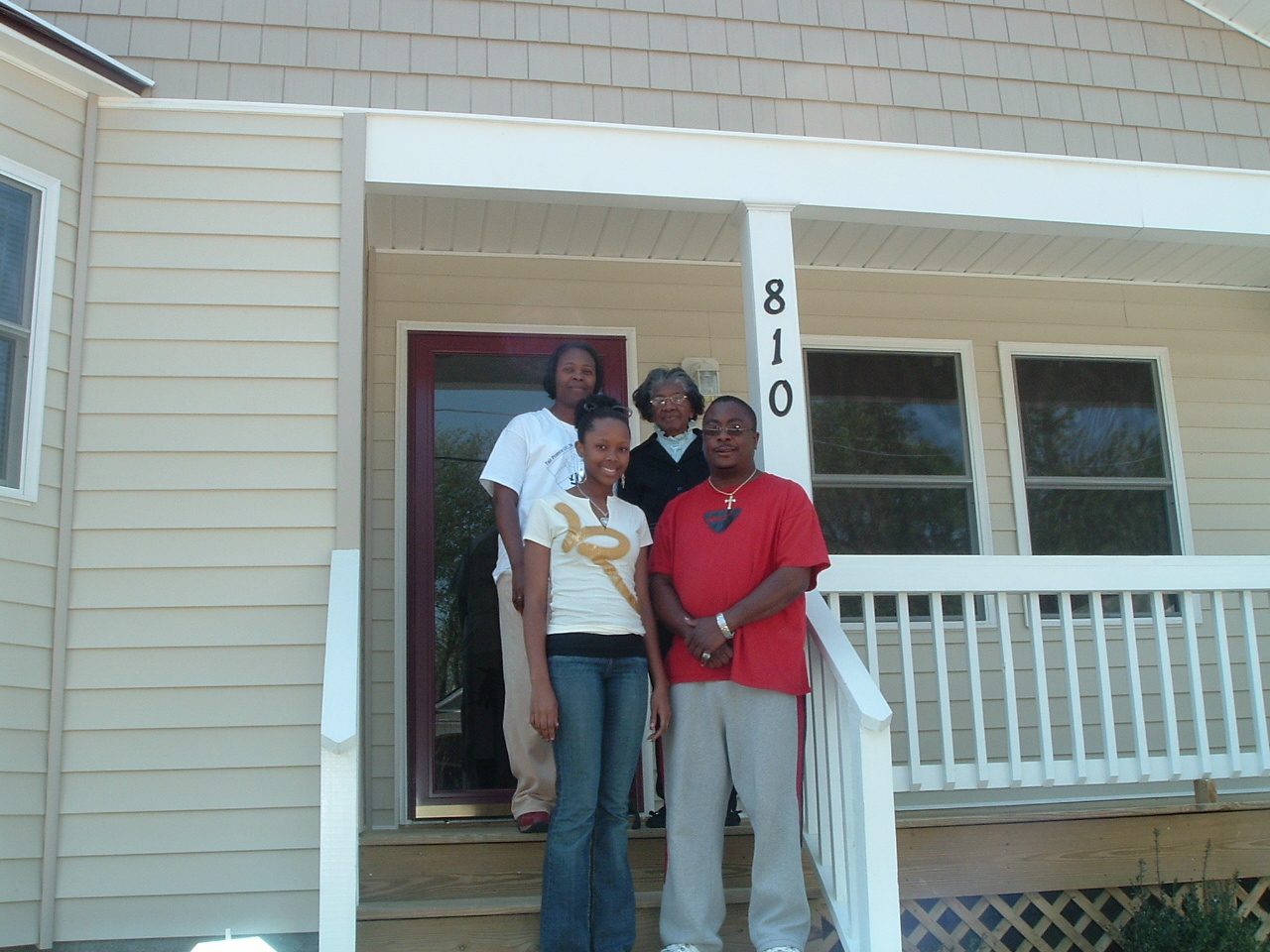

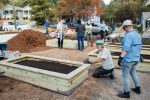

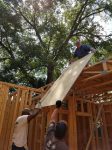


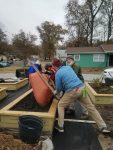

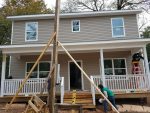
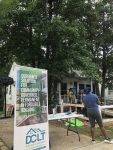



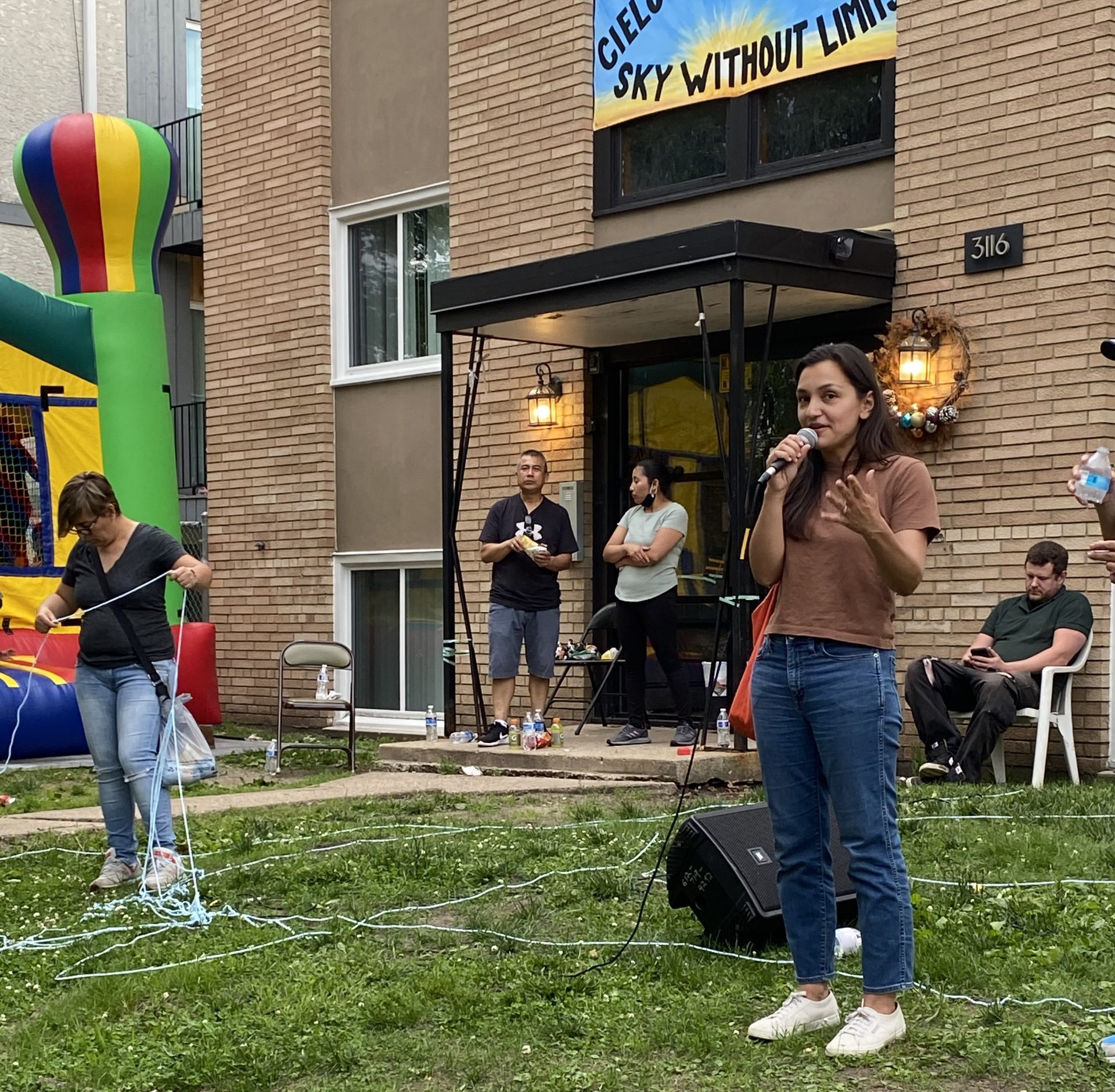
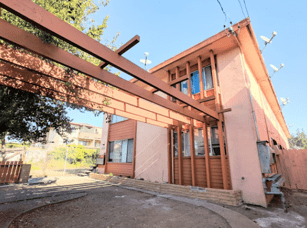
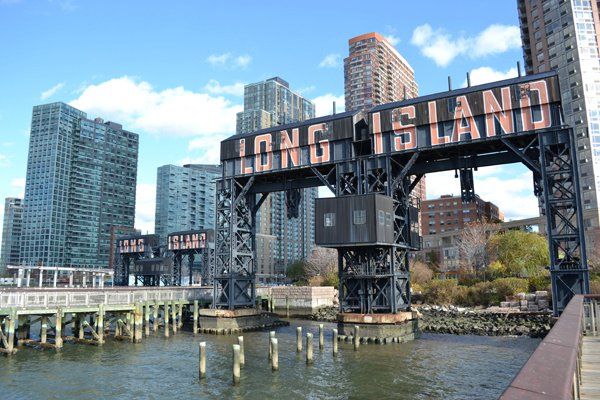
Comments